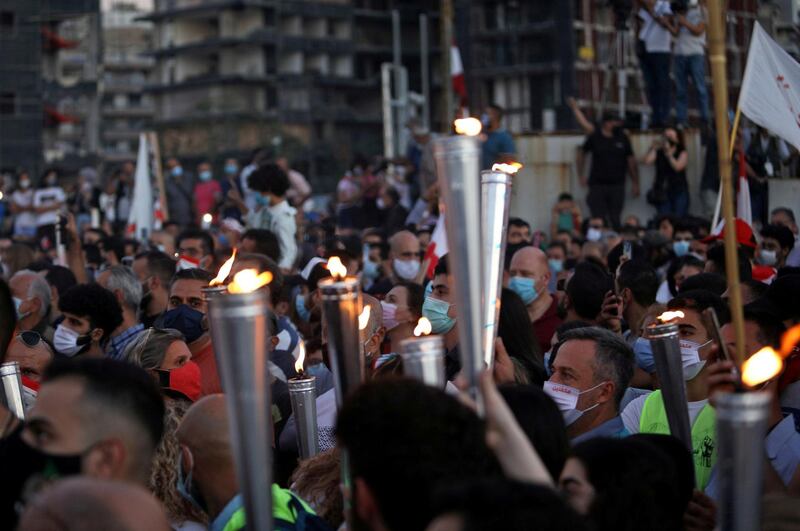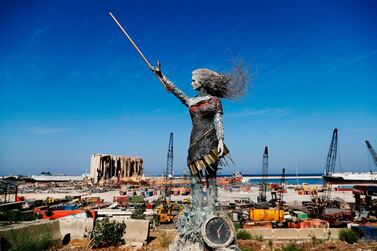Lebanon’s economy continued to deteriorate in October, as weak demand and a sharp fall in output worsened business conditions, putting more pressure on an economy that has faced 12 months of turmoil.
The Blom Lebanon PMI index, a measure of the strength of the country's private sector, edged up slightly to 43.3 last month from 42.1 in September. A reading above 50 denotes economic expansion and one below 50 represents a contraction.
"Businesses are struggling to survive, facing both supply and demand shocks due mainly to foreign currency shortages and surges in inflation, restrictions on withdrawals and transfers, and the spread of coronavirus,” Sarah Hadchiti, research analyst at BlomInvest Bank, said.
However, the headline figure for October represented the softest decline for three months.
Lebanon is facing its worst economic crisis since its independence in 1943 after defaulting on about $31 billion of eurobonds and its currency losing more than 80 per cent of its value against the dollar on the black market. Talks with the IMF for a $10bn aid package have stalled as a result of political disputes among the country's governing class.
An explosion at the Port of Beirut in August, which killed more than 200 people and devastated large parts of the capital, further compounded the country's economic woes. Inflation in August rose to above 120 per cent and Lebanon's economy is expected to contract 25 per cent this year.
As the economic crisis deepens, Lebanese private sector firms recorded another marked contraction in output in October, according to the survey. New orders also fell during the period, indicating a “further sign of deteriorating demand conditions”.
On the cost front, input prices faced by private sector firms rose solidly at the start of the fourth quarter, and private sector firms continued to cut staff for the 13th month in a row.
Backlogs of work at businesses also fell due to a reduction in orders. However, the latest decrease was the slowest since July, but still the quickest since data collection began in May 2013.
“Faced with higher input costs, firms opted to pass on some of the burden to their clients, with an increase in average output prices during October,” the survey said. Average wage expenditure at private sector firms also fell during the period.
On Wednesday, prime minister-designate Saad Hariri and President Michel Aoun announced they had agreed on the formation of a cabinet of 18 ministers – a smaller number than usual – with a view to speeding up necessary reforms that could trigger billions of dollars worth of funding from international investors.
Mr Hariri, who has been prime minister three times, had 30 ministers in his last cabinet formed in January 2019.







